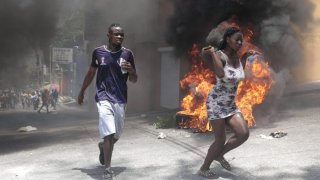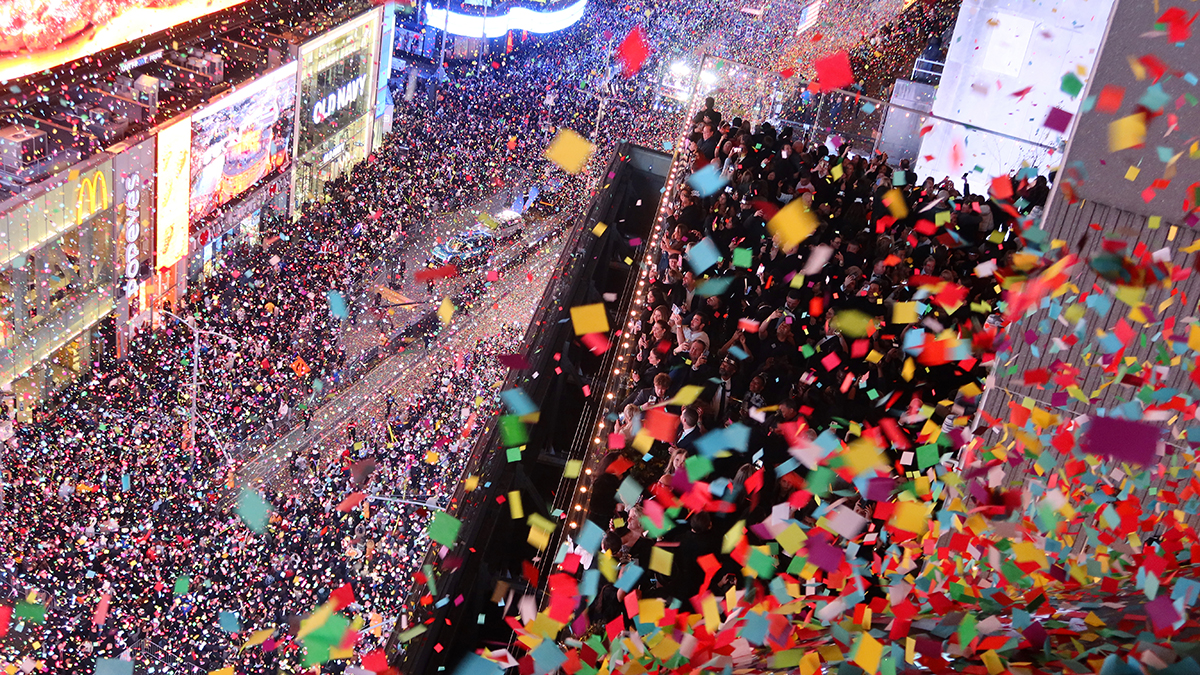
Several thousand people — their faces covered to conceal their identities — marched through Haiti’s capital on Monday demanding protection from violent gangs who are pillaging neighborhoods in the capital Port-au-Prince and beyond.
Haitians' daily lives have been disrupted by incessant gang violence that has worsened poverty across the country as it awaits a decision from the U.N. Security Council over a potential deployment of an international armed force.
“We want security!” the crowd chanted as it marched for two hours from the troubled community of Carrefour-Feuilles to Champ de Mars in the downtown area and then to the prime minister's official residence, where police broke up the demonstration with tear gas.
“I can’t work. I can’t go out. I’m like a prisoner in my own home,” said Wilene Joseph, a 36-year-old street vendor and mother of two who joined the march out of frustration.
We've got the news you need to know to start your day. Sign up for the First & 4Most morning newsletter — delivered to your inbox daily. >Sign up here.
“I worry about my kids being shot because bullets are flying from all directions all the time,” Joseph said of her children, ages 5 and 7. “The situation is unacceptable.”
Since the assassination of President Jovenel Moïse in 2021, experts say gangs have seized control of up to 80% of Port-au-Prince, killing, raping and sowing terror in communities already suffering endemic poverty.
From January to March, more than 1,600 people have been reported killed, injured or kidnapped, a nearly 30% increase compared with the last three months of 2022, according to the newest U.N. report.
U.S. & World
The day's top national and international news.
On Monday, UNICEF announced an “alarming spike” in kidnappings, with nearly 300 confirmed cases so far this year, almost equaling the number reported for all of last year, and almost three times the total for 2021.
The agency noted that women and children are increasingly being kidnapped and used for financial or tactical gain. Among those kidnapped in late July was Alix Dorsainvil, a U.S. nurse from New Hampshire, and her young daughter. Dorsainvil works for El Roi Haiti, a Christian organization that offers medical care, education and other services. She and her daughter remain in the hands of their captors, who are demanding $1 million in ransom.
Parents of young children are particularly fearful that gangs will snatch them when they go to and from school. Nacheline Nore, 40, said her two boys, ages 10 and 8, have to call her every day as soon as they step inside their school, and she rides back home with them every afternoon: “You don’t know who’s going to be the next target,” she said.
Mario Jenty, a 36-year-old cell phone vendor who joined Monday’s march, said the increase in kidnappings is pushing Haitians into even deeper poverty. “They’re going to have to sell that home to pay for ransom, and there’s a chance they might not be released,” he said of the victims.
Jenty, who lives in Carrefour-Feuilles, said he would not allow gangs to take over his neighborhood. “I’m going to fight this,” he said. “I’d rather die than leave my community.”
Jenty joined the thousands of Haitians who yelled “Bwa kale!” on Monday as they marched, a reference to a violent uprising that began earlier this year, with civilians targeting suspected gang members. More than 200 people have been slain since then, and demonstrators vowed to keep the movement alive as gangs overwhelm Haiti’s understaffed and under resourced police department.
Last October, Haiti’s prime minister and other top-ranking officials requested the urgent deployment of an international armed force to help quell gang violence.
In late July, Kenya offered to lead a multinational police force, but the U.N. Security Council has yet to vote on a resolution to authorize a non-U.N. multinational mission. The U.S. said last week that it would put forward such a resolution.
___
Associated Press writer Dánica Coto in San Juan, Puerto Rico contributed.



